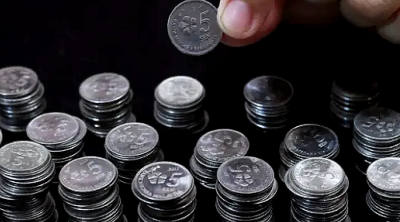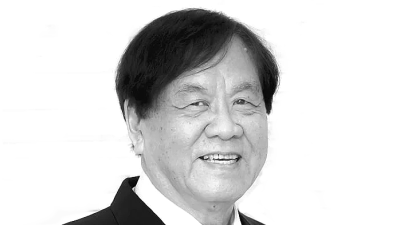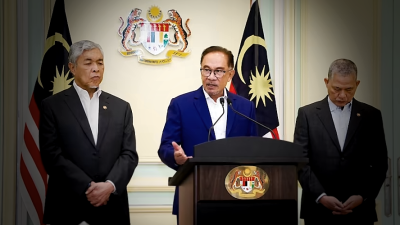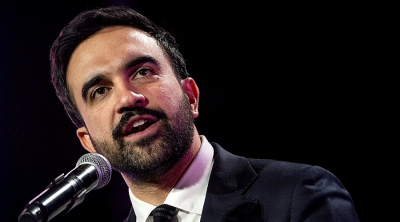SINGAPORE: With the world gathering in Brazil from Nov 10 to face a reckoning on whether national pledges have translated into action, Singapore is banking on carbon markets as a key area of collaboration at the 30th edition of United Nations climate talks, COP30.
The carbon market allows parties to buy carbon credits from projects elsewhere in order to meet their emissions targets set under the Paris Agreement, which aims to limit global warming to 1.5 deg C above pre-industrial levels.
This means that countries need not rely solely on domestic efforts to cut emissions.
For a country like Singapore, this is an especially powerful tool to help it move on climate change, due to its lack of low-carbon energy alternatives.
In an interview with local media ahead of the conference, Minister for Sustainability and the Environment Grace Fu had said that establishing such collaborations will be a key focus for her at the conference.
The Straits Times looks at how COP30 will further shape the emerging carbon market, and what this means for Singapore and Southeast Asia.
How have the climate COPs led to real-world outcomes on carbon trading?
The framework that enabled the global trade in carbon credits was finalised at COP26 in 2021 , following years of talks.
The first is by inking bilateral agreements between buyer and seller countries.
So far, only one formal transfer of credits has concluded, between Switzerland and Thailand.
The credits were generated from a reduction in carbon emissions arising from converting pollutive combustion engines in a Bangkok bus fleet to cleaner electric vehicles.
Singapore is laying the groundwork for it to obtain carbon credits via this approach, sealing pacts with 10 countries to date .
They are Bhutan, Chile, Ghana, Papua New Guinea, Peru, Paraguay, Rwanda, Thailand, Vietnam and Mongolia.
Of these, eight were signed over the past 10 months, leading a spokesperson for the Republic’s Ministry of Trade and Industry (MTI) to describe 2025 as a “harvest year” for Singapore.
A key element of such agreements is to ensure that the same emissions reduction effort is not double-counted, a scenario where both the buyer and host country count the same emissions reductions or removals towards their own targets.
Some of these pacts have progressed further, with application calls for carbon credit projects for Ghana and Peru issued.
The second mechanism facilitating the international transfer of carbon credits is a UN-managed program , which will provide countries with a one-stop shop for eligible carbon credits of high environmental integrity standards.
The Paris Agreement Crediting Mechanism run by the UN was green-lit only at COP29 in the Azerbaijan capital of Baku.
Talks are still ongoing to flesh out the specifics of how this program can be implemented.
What are the key outstanding issues left to be discussed on the Paris Agreement Crediting Mechanism?
International Emissions Trading Association international policy adviser Bjorn Fonden said countries are expected to get further guidance on the centralized market at COP30, as well as the credits from projects that can be traded on it.
One of the key issues relevant to Southeast Asia is whether carbon credits from nature-based projects will be allowed to be traded on this platform.
Nature acts as a carbon sink by siphoning harmful emissions from the atmosphere.
Credits can be generated from activities like reforestation, or avoiding deforestation.
Nature-based credits account for roughly one-third of the supply in the global carbon market, according to MTI.
Concerns have been raised over the permanence of these solutions, as there is a higher risk of the stored carbon being released should a disturbance, such as a forest fire, occur.
Fonden noted: “For carbon credits from these types of projects, it is important to ensure they are of high environmental integrity.”
These include ensuring permanence, not double-counting the credits, and avoiding leakage.
Leakage occurs when a forest is cleared somewhere else outside the conservation area.

How will COP30 discussions on the carbon market shape this sector?
The Brazilian presidency coordinating COP30 has proposed a coalition to unify the carbon trading systems of various jurisdictions, which are currently underpinned by different standards, to make it easier for countries to partner each other.
Singapore Green Finance Centre’s management committee member Rajiv Lall said the coalition could increase demand for “Singapore-grade” carbon credits, as these credits are compliant with the Paris Agreement and have strong verification.
Singapore has developed a set of criteria that carbon credits must meet in order for them to be used to offset national emissions.
This eligibility list is to ensure high environmental integrity standards, and is regularly reviewed to maintain relevance.
“Singapore has already invested heavily in building itself as a trusted, well-regulated regional hub for carbon credit issuance and trading,” the economist added.
Janet Hallows, the director of climate programs and nature-based climate solutions at environmental services consultancy Carbon Market Institute, said that as more countries in the region express an interest in developing their carbon markets, Singapore’s role as a carbon trading and services hub will be reinforced.
Indonesia, Malaysia and Vietnam, for instance, have made moves to participate in the international carbon market.
The greater participation of Asean nations in the carbon market will also open up new opportunities for them to host projects that can generate carbon credits, she added.
Other than nature-based projects, other sources of carbon credits can include technological projects, such as direct air capture plants.
A new class of carbon credits, called transition credits, that is being piloted in Southeast Asia reflects Singapore’s encouragement of product innovation in carbon markets, said Dr Lall.
Such credits are generated from the reduction in emissions when coal plants are retired early and replaced with clean energy sources.
These credits were designed to accelerate the phasing out of coal-fired electricity generation plants across the region.
They were developed in Singapore, and discussions are ongoing to use these credits to phase out a coal plant in the Philippines.
What implications does COP30 have on jobs?
An MTI spokesperson said that COP30 outcomes can influence how the green economy evolves.
She said: “Clear climate commitments, and clearer decarbonization-related rules and frameworks, can help build momentum for new business opportunities and jobs over time.”
For example, countries that host carbon projects will get to benefit from tangible sustainable development benefits, she said, citing job creation, community development and ecosystem protection.
As global demand for high-integrity carbon markets grows, so too will the need for carbon services and trading expertise, she added.
Singapore is well-positioned to contribute to the effort of building up carbon markets in the region and internationally, said the MTI spokesperson.
There are currently more than 150 firms across the carbon services value chain that operate from Singapore. These firms offer jobs across project development, project financing, carbon trading and low-carbon advisory services.
She added: “This sector is already creating new and diverse roles, such as carbon project developers, verifiers, auditors, investment specialists, decarbonization consultants and sustainability risk managers.”
Complementing these efforts to train Singapore’s workforce to deal with carbon services and trading, the Monetary Authority of Singapore has committed $35 million (RM112) from the Financial Sector Development Fund over the next few years to strengthen the pipeline of sustainable finance specialists.
Carbon projects can also benefit local communities tasked with the responsibility of protecting carbon sinks like mangroves and rainforests.
Fonden said carbon markets across Southeast Asia are already supporting the conservation and restoration of rainforests and critical ecosystems; the deployment of renewable energies; sustainable waste management and much more.
But Dr Lall said it will take time to scale up these markets to a level where there is a meaningful flow of resources into countries hosting these projects.
“The biggest obstacles are fragmentation and lack of interoperability across countries,” he added, referring to the ability for systems in different jurisdictions to work together.
“Until standardized rules and methodologies for measurement, reporting and verification have widespread cross-jurisdictional support, carbon credits will not be trusted by potential buyers, demand will remain tepid, and prices low.
“Building consensus on these issues and then getting it implemented is not easy—it will take time. COP30 is important for giving a boost to this process.”
What is Singapore doing on carbon markets?
Singapore has taken a “front-runner position in international carbon markets”, said Fonden.
He noted: “Compared with many other countries, which choose to develop and use their own methodologies and standards, Singapore is leaning into international standards and quality criteria, which helps to build confidence.”
Hallows lauded Singapore’s “innovative transition credits coalition”, otherwise known as Traction, which she said demonstrated a forward-looking, Asean-specific strategy to support Southeast Asia’s transition away from fossil fuels.
The initiative was launched in December 2023, and is backed by nearly 30 members, including the Asian Development Bank, Temasek and DBS Bank.
At COP30, the Republic plans to showcase through the Singapore Pavilion its commitment to developing a high-quality carbon market.
ADVERTISEMENT
ADVERTISEMENT








































